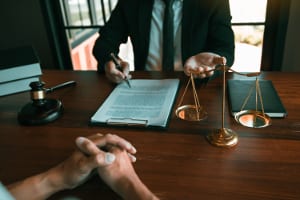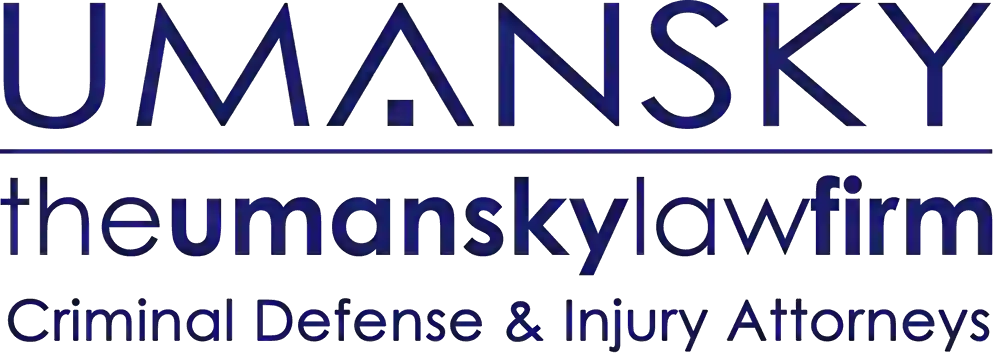As former Florida prosecutors, we’ve tried hundreds of cases and bring a rare insider’s perspective to every defense. We understand how cases are built on both sides, which helps us negotiate more effectively, positioning each case for the strongest possible outcome.
 If you’re a licensed attorney in Florida who is the subject of an ethics complaint or facing an inquiry from The Florida Bar, you are likely feeling very worried about your professional future.
If you’re a licensed attorney in Florida who is the subject of an ethics complaint or facing an inquiry from The Florida Bar, you are likely feeling very worried about your professional future.
An ethics complaint—an inquiry into your professional conduct—can result in disciplinary actions that could lead to a permanent revocation of your license to practice law and could carry detrimental personal and legal ramifications. As a licensed lawyer in Orlando, your reputation is paramount.
If you’re a licensed lawyer who’s confronted with a complaint, you must take swift measures to settle the complaint with a dedicated professional license defense attorney who can guide you through the process and help you fight against the allegations you face to preserve your future career and reputation. Contacting a skilled administrative license lawyer could be the difference between having the charges dropped or never practicing law again.
Lawyers advise clients, provide them with a thorough understanding of both their legal rights and implications of their case, and represent them and their legal rights in criminal and civil courts of law. They manage their clients’ cases by preparing paperwork and documents, offering legal counsel, and advocating on their behalf before a judge or jury.
As a legal professional, lawyers have a particular responsibility for the quality of justice and abide by the ethics rules that reinforce the Bar’s professionalism. They are a legal advocate for their clients and negotiate to find a favorable outcome for their clients that’s consistent with the requirements of honest dealings with others.
According to the Florida Bar’s Rules of Professional Conduct Preamble, lawyers have the following legal responsibility:
“A lawyer should keep in confidence information relating to representation of a client except so far as disclosure is required or permitted by the Rules of Professional Conduct or by law… A lawyer should use the law’s procedures only for legitimate purposes and not to harass or intimidate others… While it is a lawyer’s duty, when necessary, to challenge the rectitude of official action, it is also a lawyer’s duty to uphold the legal process.”
Having a license proves to the public, potential clients, colleagues, and court officials that you are a capable legal professional and educated in legal matters. Most importantly, it is illegal to practice law without a license from The Florida Bar, and anyone who tries to do so will be investigated by the Bar.
Additionally, every three years, lawyers must fulfill 30 hours of Mandatory Continuing Legal Education (MCLE) to remain licensed. This education program focuses on ethics, professionalism, mental illness awareness, or substance abuse. That ensures that lawyers are capable of fulfilling their professional and legal requirements.
Lawyers take the exam to become licensed through The Florida Bar. As an official agency of the Supreme Court of Florida, the Florida Bar also certifies lawyers in specific law fields, like personal injury, tax, or family law. The Florida Bar under the Supreme Court of Florida oversees the professional conduct and rules of over 107,000 attorneys who practice law in Florida.
Several illegal and unethical activities can put a lawyer’s license to practice at risk. This unprofessional conduct can occur with a colleague, a client, or in their business practices. An attorney could face a formal complaint that could result in disciplinary action from The Florida Bar, including those related to:
These are only a few matters that could lead to a complaint with The Florida Bar. A Florida license defense attorney can assist in defending your lawyer’s license by advising them on how to dispute the allegations to the ethical rules they are accused of violating.
A complainant or any complaining witness who wishes to notify The Florida Bar about an attorney’s unethical or unprofessional behavior would do so by contacting The Florida Bar’s Attorney Consumer Assistance Program (ACAP) by calling 1-866-352-0707. The ACAP staff investigates complaints and can often resolve the issue before a formal complaint is filed.
If the investigation secures enough evidence to move the claim to the next phase, the complaint will be reviewed by a Probable Cause Panel. That will usually involve members on The Florida Bar who review the records and evidence related to the complaint.
It is essential that you have reliable legal defense counsel throughout this process and that you do not try to manage the situation alone.
The Panel Review can result in three possible outcomes:
A finding of “no probable cause” is a dismissal of the case, which means there was insufficient evidence to support the claim that you violated any rule or regulation. A “letter of guidance” is not a disciplinary action, but it’s issued when the panel finds a minor violation. The most severe outcome is when a formal Administrative Complaint is issued against you.
An Administrative Complaint defines the statements and evidence against you found during the investigation, along with the specific laws or regulations that you’re accused of violating. After consulting with your attorney, you can elect to attend either an Informal Hearing or Formal Hearing.
If you choose to proceed with an Informal Hearing, that means you do not wish to dispute any of the charges against you, nor do you plan to reveal any fresh evidence. Instead, you’re acknowledging the complaints, and you’ll face the Board again, where they’ll make a final decision about what penalties will be enforced against you.
If you want to dispute the accusations and facts that have been discovered against you during the investigation, you will go ahead with a Formal Hearing. This hearing is before Florida’s Division of Administrative Hearings (DOAH) and is chaired by an Administrative Law Judge (ALJ). The ALJ hears the proof from both sides and makes a final Recommended Order to the Board. The Board then makes a definitive decision concerning disciplinary actions.
You can appeal the decision by submitting a judicial review petition if your license to practice is suspended or withdrawn. It is essential to consult with your attorney and rely on them as your trusted advocate as you go through this process—always seek advice from them before making any decisions.
At The Umansky Law Firm, our professional license defense team examines each case in great detail to discover the relevant facts and the best method to safeguard your license to practice law. Overall, some complaints, often relating to white-collar crime like embezzlement and fraud, can go to criminal court, and you can face criminal charges. Having a skilled criminal attorney who handles professional license defense is a top priority. Our professional license attorneys are prepared to defend you against allegations of professional misconduct, ethics violations, professional incompetence, fraudulent activities, and more.
Umansky administrative lawyers can assist you in many different ways, including:
When your attorney’s license is at risk, you need a lawyer who can put years of expertise defending professionals on your side. If you’ve been charged with committing an act that might prompt The Florida Bar to revoke your license, call The Umansky Law Firm to provide robust representation on your behalf. As experienced trial attorneys, we have an exceptional understanding of the evidence code. We can help you prepare a powerful defense that may include dismissal of the allegation or complaint against you.
The Umansky Law Firm attorneys include former prosecutors and defense attorneys. We will go to great lengths to defend your right to practice as a licensed attorney in Florida. To speak with an experienced administrative lawyer, complete an online contact form or call today.
The Umansky Law Firm Criminal Defense & Injury Attorneys

The Umansky Law Firm Criminal Defense & Injury Attorneys
